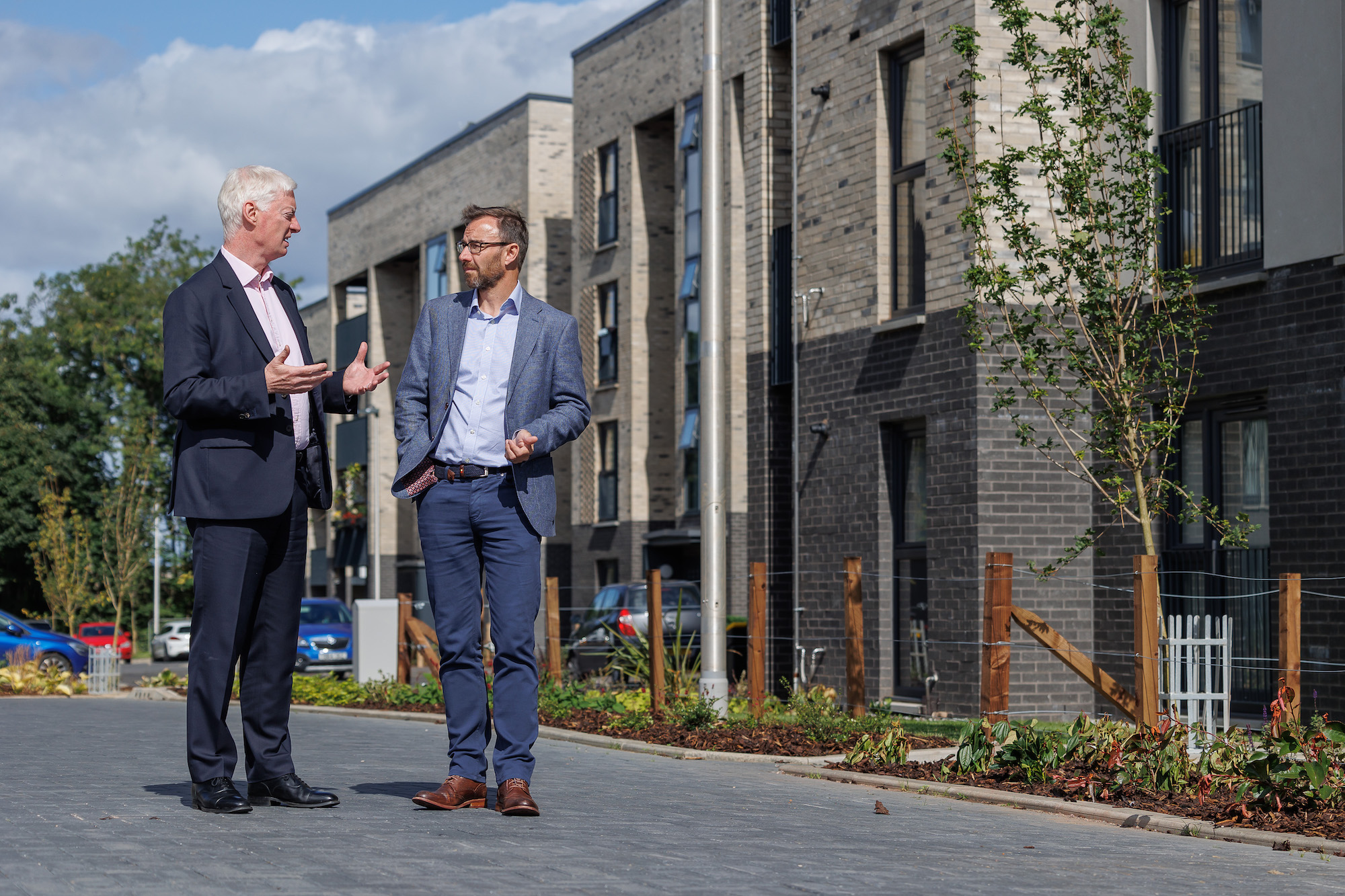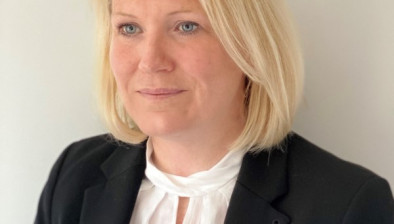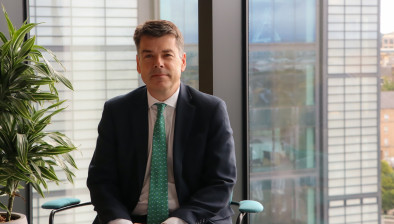Circularity Scotland accounts for £4.5m of SNIB’s £17.8m loss

Pictured (L-R): Scottish National Investment Bank CEO Al Denholm and William Kyle, fund director at PfP Captial, visit a new housing development at Kane Neuk, in Newcraighall, Edinburgh where backing from the bank has delivered 104 homes (credit: Nick Mailer Photography)
Circularity Scotland has accounted for £4.5 million of the Scottish National Investment Bank’s £17.8m unrealised loss, according to the bank’s latest full year accounts.
Just a little over two years since its inception, the bank has significantly influenced the Scottish economy by committing over £445m of long-term strategic investment. This dedication has enabled the attraction of an additional £703m from various sources, cumulatively amassing well over £1.1 billion in support for Scotland’s economy.
The bank’s activity has spanned all its missions across a range of businesses and projects. All investments must help achieve the missions of supporting Scotland’s transition to net zero, improving places and communities or harnessing innovation.
Over the course of the last financial year its portfolio has:
- Expanded from 14 to 27 investments
- Secured the completion of 481 mid-market rental homes
- Helped support 43 patents
- Placed 30% of the total value of investments into 20% of the most deprived communities in Scotland
Companies and projects such as pureLiFi, Elasmogen, North Star Renewable and Orbex, have all been backed by the bank, each of which delivered against one or more of the bank’s missions.
The bank recorded a total pretax loss of £20.2m with the majority made up of the £17.8m unrealised loss related to adjustments which reflect the underlying performance of investee companies.
The bank’s annual report noted: “Excluding this number, the bank made a loss of £2.4m compared to £7.8m the year before, demonstrating the progress made towards operational financial self-sustainability.”
CEO Al Denholm said: “These results show strong progress for the bank with revenue increasing 463% to £10.7m over the past 12 months, while there was a 55.5% increase in committed investment of £220.7m.”
“I believe we can become one of the most respected impact investors in the industry, generating social, environmental and economic returns for the people of Scotland.
“I look forward to working with the team and our many stakeholders, on delivering the bank’s missions on behalf of the people of Scotland.”
Jobs supported by investee business have reached 2,300, and 100% of businesses have committed to fair work first principles.
While delivering impact and commercial returns from its investments, as a development bank it also adopts a higher risk appetite than other investors. Risk is based on the measured judgement of the investment team and is considered throughout the investment decision making process.
The bank is still in early stages, being only 2 years old. As a patient capital investor, the bank will look at opportunities and returns over the long term and while it is inevitable that not all of our investments will deliver a positive return, with this long-term view, fluctuation is expected within the portfolio.
Chairman Willie Watt said: “Our capacity as an organisation to deliver insight, investment and impact has grown significantly.
“As an institution we are moving out of our start-up phase and are becoming an increasingly established organisation, delivering solidly against our business plans.
“The overall economic climate has been challenging for companies seeking to raise investment.”
Mr Watt continued: “As a development bank with a particular focus on long-term and strategic investment, we have worked to support innovative, growth-oriented businesses to navigate these conditions while delivering on their ambitious business strategies.
“Despite incurring our first investment loss after the end of this financial year, we continue to work towards a positive net return across our portfolio as a whole, demonstrating both responsible and productive stewardship of public capital.”







